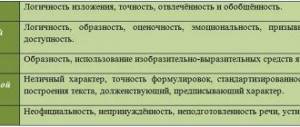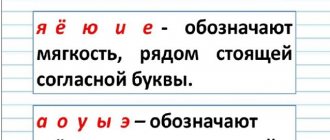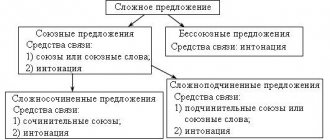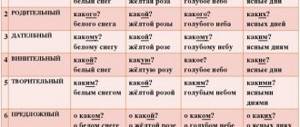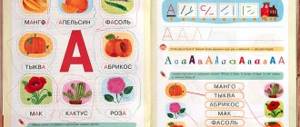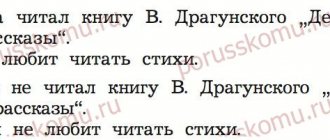How to recognize an exclamatory sentence
If we read a ready-made text, we can easily distinguish an exclamatory sentence by its punctuation mark - there is an exclamation mark at the end.
By ear, we distinguish exclamatory sentences from non-exclamatory sentences by how emotionally they are pronounced. The information in exclamatory and similar non-exclamatory sentences is the same, but the exclamation is pronounced with greater expression, louder, with the expression of some emotion.
You should not confuse incentive and exclamatory sentences: there are both exclamatory non-incentive sentences and incentive non-exclamatory ones.
For example, the sentence “Spring has come.” contains a simple statement of fact. It is impossible to conclude how the speaker feels about this event.
Sentence “Spring has come!” expresses strong emotions and expression. Most likely, the speaker wants to express his joy (although this cannot be determined by the exclamation mark: perhaps he wants to express disappointment, irritation, fear or other strong emotion).
Exclamatory sentences are often found in journalistic texts, where they perform a rhetorical function.
Exclamation markers
The main marker (sign) of an exclamatory sentence is the exclamation point. This is one of the end of sentence marks; it is quite enough to show that the sentence has ended. However, in some cases, not one, but three exclamation marks are used at the end of a sentence. This is done in order to emphasize a very strong emotion.
Interrogative exclamation sentences require two marks at the end: a question mark and an exclamation mark. The rule is that an exclamation mark at the end of a sentence is placed after a question mark. Such sentences often contain not just an emotional question, but rather a rhetorical question, expressing more indignation or bewilderment than a desire to receive an answer.
Some sentences end with an exclamation mark and an ellipsis. Then one of the dots (the first one) is replaced with an exclamation mark. Example: “What an amazing incident!..”
Another common use of the exclamation mark is in the design of requests. However, it must be borne in mind that this is not a proposal in the full sense.
What are exclamatory sentences?
To understand what an exclamatory sentence is, let’s compare two very similar, at first glance, statements:
The sun has already risen.
The sun has already risen!
The first sentence contains a statement of fact, a message about a natural phenomenon when the darkness ended and day came. This is a declarative sentence that is pronounced in a calm tone, without much expression.
The second sentence also talks about the same phenomenon, but it contains the emotion of joy, delight and admiration.
Let us conclude that sentences may differ from each other in the strength of the feeling expressed in them.
The speaker can express joy, admiration, grief, fear, indignation, anger, irritation, etc.
This is manifested in oral speech with the help of a special intonation, more intense, elevated. In writing, an exclamatory sentence is indicated by an exclamation point.
An emotionally charged sentence is called an exclamatory sentence.
Sentences can be pronounced in a calm, even tone. Based on the strength of the expressed feeling, these are non-exclamatory sentences. A sentence can be pronounced with a special intonation that conveys a strong feeling.
Let's compare:
The apple trees bloomed in the garden (declarative, non-exclamatory sentence).
You go into the garden, and the apple trees are blooming there! (declarative, exclamatory sentence).
In terms of emotional coloring, all types of sentences can be exclamatory, differing in the purpose of the statement.
Let's observe:
I want to dance (narrative, non-exclamatory)
I want to dance! (declarative, exclamatory)
Haven't you learned this rule? (interrogative, non-exclamative)
Haven't you learned this rule yet?! (interrogative, exclamation)
Be sure to call me today (incentive, non-exclamatory)
Be sure to call me today! (motivating, exclamatory).
According to emotional coloring, all sentences are divided into exclamatory and non-exclamatory.

